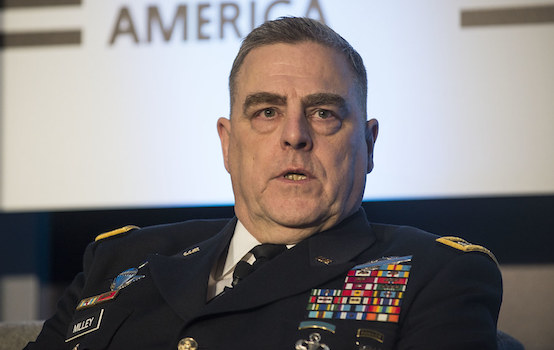
Tom Engelhardt. Introduction by W.J. Astore.
Ever since that fateful day of 9/11/2001, Americans have been trying to process what can only be termed a colossal defeat. Showing our usual capacity for denial, we’ve rebranded it as a day for patriotism. We built the Freedom Tower, exactly 1776 feet high, on the ruins of the Twin Towers. We “got” Osama bin Laden. Yet the first victims of our collective rage, the Taliban in Afghanistan, have somehow emerged triumphant in a long destructive war against U.S. and NATO forces.
With his usual powerful prose, careful research, and keen eye for telling details, Tom Engelhardt has written a compelling introduction to Rajan Menon’s latest article on the Afghan War. It’s reposted here with Tom’s permission. W.J. Astore
It started with three air strikes on September 11, 2001. The fourth plane, heading perhaps for the Capitol (a building that wouldn’t be targeted again until last January 6th), ended up in a field in Pennsylvania. Those three strikes led to an American invasion of Afghanistan, beginning this country’s second war there in the last half-century. Almost 20 years later, according to the New York Times, there have been more than 13,000 U.S. air strikes in Afghanistan. Call that payback after a fashion. There’s only one problem: the greatest military on the planet, with a budget larger than that of the next 10 countries combined, has visibly lost its war there and is now in full-scale retreat. It may not be withdrawing the last of its forces on May 1st, as the Trump administration had agreed to do, but despite the pressure of the American military high command, President Biden “overrode the brass” and announced that every last American soldier would be gone by the 20th anniversary of those first airstrikes against the Pentagon and the World Trade Center.
At this late date, consider it grimly fascinating that the generals who all those years kept claiming that “corners” were being turned and “progress” made, that we were “on the road to winning” in Afghanistan, as the present Chairman of the Joint Chiefs Mark Milley insisted back in 2013, simply can’t let go of one of their great failures and move on. Under the circumstances, don’t for a second assume that the American war in Afghanistan is truly over. For one thing, the Taliban have not yet agreed to the new withdrawal date, as they did to the May 1st one. Instead, some of its commanders are promising a “nightmare” for U.S. troops in the months to come. Were they, for instance, to attack an air base and kill some American soldiers, who knows what the reaction here might be?
In addition, the Pentagon high command and this country’s intelligence agencies are still planning for possibly making war on Afghanistan from a distance in order to “prevent the country from again becoming a terrorist base.” As Eric Schmitt and Helene Cooper of the New York Times reported recently, “Planners at the military’s Central Command in Tampa, Fla., and Joint Staff in Washington have been developing options to offset the loss of American combat boots on the ground.”
In other words, the American war in Afghanistan may be ending but, as with so much else about that endless experience, even the finale is still up for grabs. In that context, consider the thoughts of TomDispatch regular Rajan Menon on what has, without any doubt, been the American war from hell of this century. Tom
Please read Rajan Menon’s latest article at TomDispatch.com.


We can keep sending troops, or hiring troops but in the end Afghans live there and we don’t. That stark. We are temporary. The Afghans are permanent. They have been for centuries.
The generals and others simply invested too much of their prestige (quote, unquote). Wrong investment.
LikeLike
the hubris of the US war machine is incalculable. the generals, the corporate powers who control the pentagon, congress, executive, and judicial branches of govt, concomitant w/ the empowered myrmidons of said-elites, are shameless in their obscene devastations of those who do not bend to their will… “plus ça change, c’est la même chose”! where are the published stats of those afghans whom the US has annihilated in order to guarantee “american democracy and its gun-toting freedoms”?
LikeLike
We begin to look foolish when every effort to create better outcomes for populations, who “we judge” are in need of our “enlightening” way of living, begins with naked aggression. When we learn to apply clear comprehension to foreign policy, meeting nations at the negotiating table with a meal whose courses contain loving-kindness, compassion, joyfulness, and equanimity; we may then experience the transformation we “say we came to offer”. Afghanistan was already concussed from way too many years of recent conflict. We obviously miscalculated our way into 20 years of repeating the same Russian outcome for ourselves. Our brightest lights in the halls of leadership have failures laid at the foot of their prided thrones, and they are left to gaze upon and contemplate the defeat. I’m hoping for some introspective awareness to dawn on the minds of those who wed themselves with the failure of war diplomacy . Maybe they will begin to hear the voices of reason who had first hand experience in face to face human interaction with afghanis; who have been trying to get their wisdom freed from blockages within the streams of command; so that their sharp perspectives can chisel away the hard headed concepts of failed ideology that have brought about so much pain and such minuscule success. One can only dream of brighter days; but prayerful contemplation, with a good dose of humility that seeks forgiveness for our belligerence, may yet find us walking hand in hand with our enemies toward true friendship and right relationships.
LikeLike